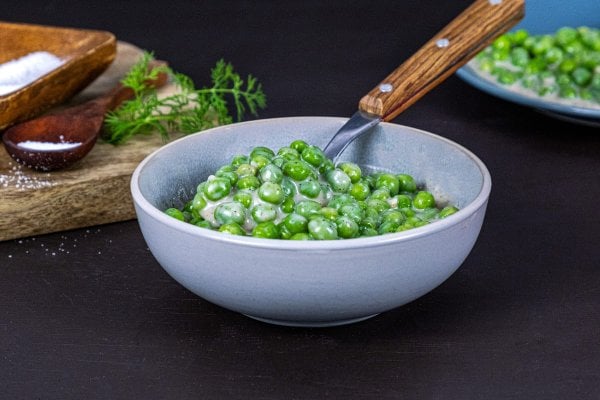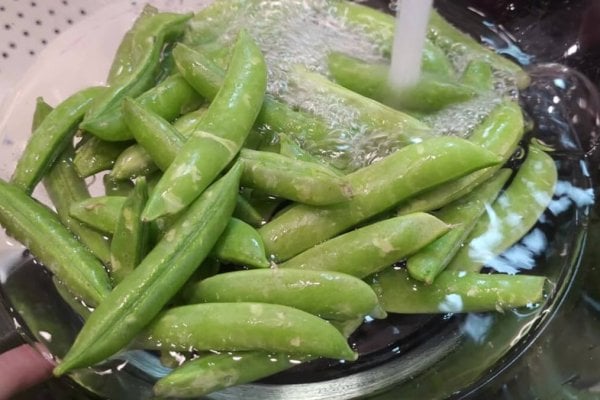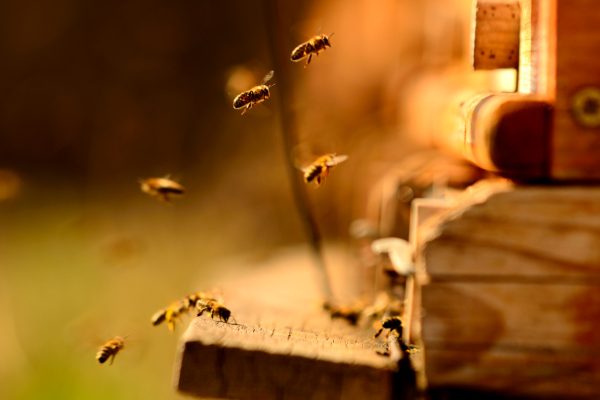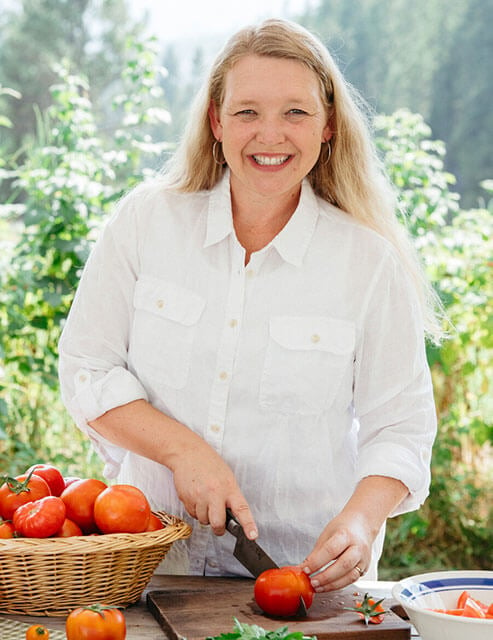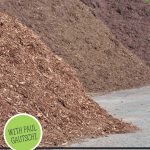
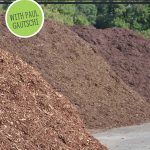
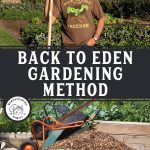
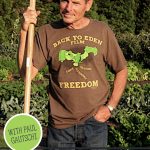
Learn the basics and how to get started with the Back to Eden gardening method made known by Paul Gautschi. We’re chatting with him as he answers many frequently asked questions and gives tips for those just getting started.
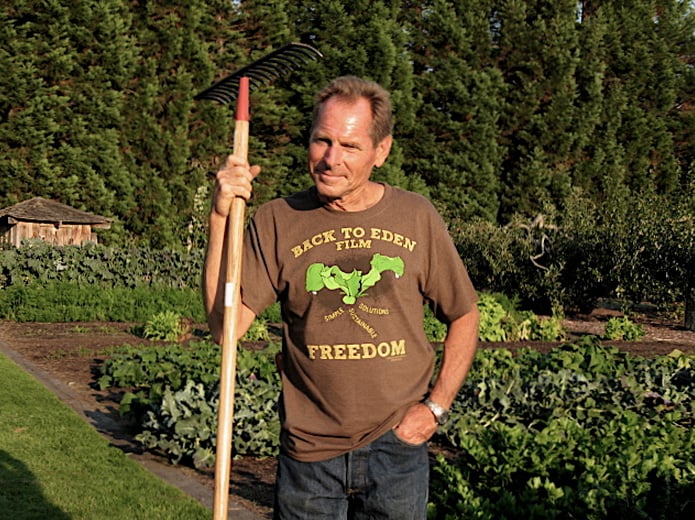
Many gardeners have at least heard of the Back to Eden gardening method. The premise is a basic no-till gardening method where you layer on fresh woodchips every couple of years that slowly break down, feeding the plants, trees, and fruit with a perfect 7.0 pH balance.
The simplicity of this method has often made it seem “too good to be true,” but Paul’s own garden is proof of its validity.
Watch the interview below, or continue reading for answers to many of the frequently asked questions surrounding the Back to Eden gardening method.
How Did Back to Eden Gardening Start?
Back to Eden gardening started with Paul Gautschi when he moved to his homestead and dug a well. At 213 feet, it had only half a gallon of water per minute. He wanted to grow a garden, but it was August and everything around him was dead.
He found himself praying and God told him to go out into the woods. Once he was there he dug down into the ground and found the soil under the covering of the ground was damp. That was when he realized that he could mimic the covering of the forest floor in his garden and grow a garden, even with minimal water.
Paul then took this method and applied it to his orchard. But he continued to till, weed, and struggle to get a good deep soil bed in his garden. He continued to pray and ask God to help him and God told him, “Go weed the orchard, I’m not going to talk to you.” Once he was in the orchard he was digging down into beautiful soil, elbow deep, and that’s when God showed him this same method of layering woodchips would work for the garden as well.
After he shared this new method with some friends they talked him into allowing two filmmakers to come out and do a documentary.
Eleven months later, the film was completed and put out on the internet. It’s now been seen over 50 million times and people around the globe are using this method of gardening.
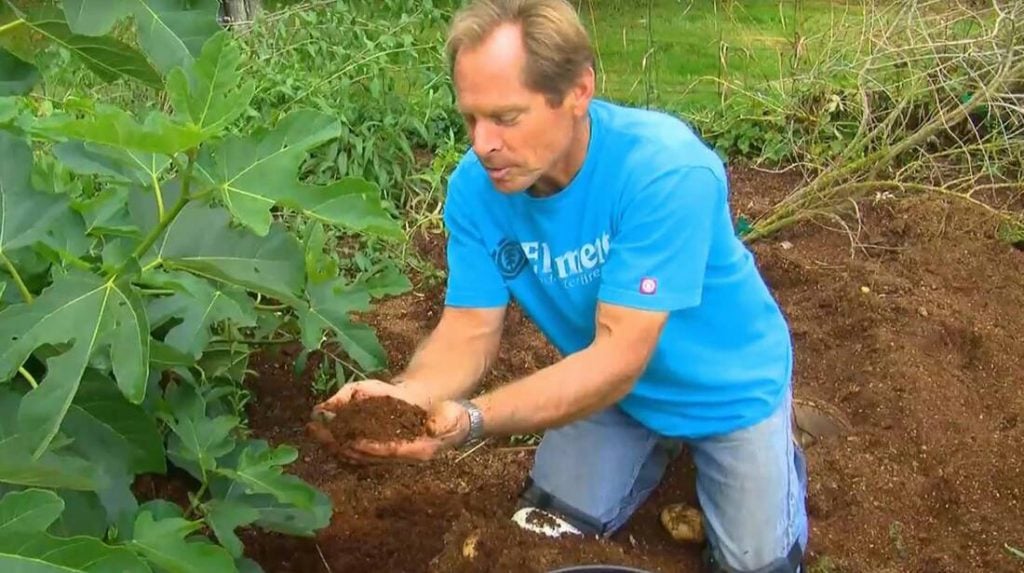
What is Back to Eden Gardening?
Everything in nature has a covering. We have skin, birds have feathers, fish have scales, etc. The earth is covered in soil and that soil likes to be covered as well.
So the Back to Eden gardening method is mimicking nature, like that of the forest floor that gets covered in layers of leaves, decaying wood, pine needles, etc. If you dig down into the forest floor you’ll find rich soil that’s just bursting with life.
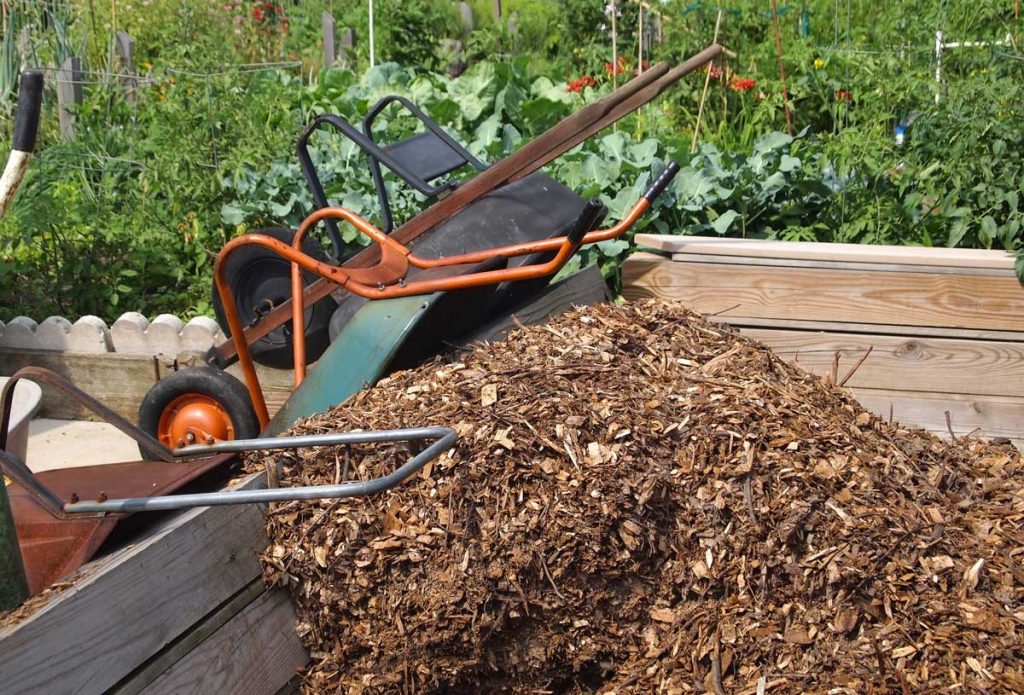
How to Get Started with Back to Eden Gardening
If you want to get started with the Back to Eden method, simply add four to six inches of woodchips to the top of your garden soil.
The best source will include all parts of the tree (bark, branches, and leaves or needles). Any tree will do, however, Paul does mention that Eucalyptus trees aren’t great because there’s oil in them that plants don’t like.
What you’re covering or growing will determine the size of the woodchips you want to use.
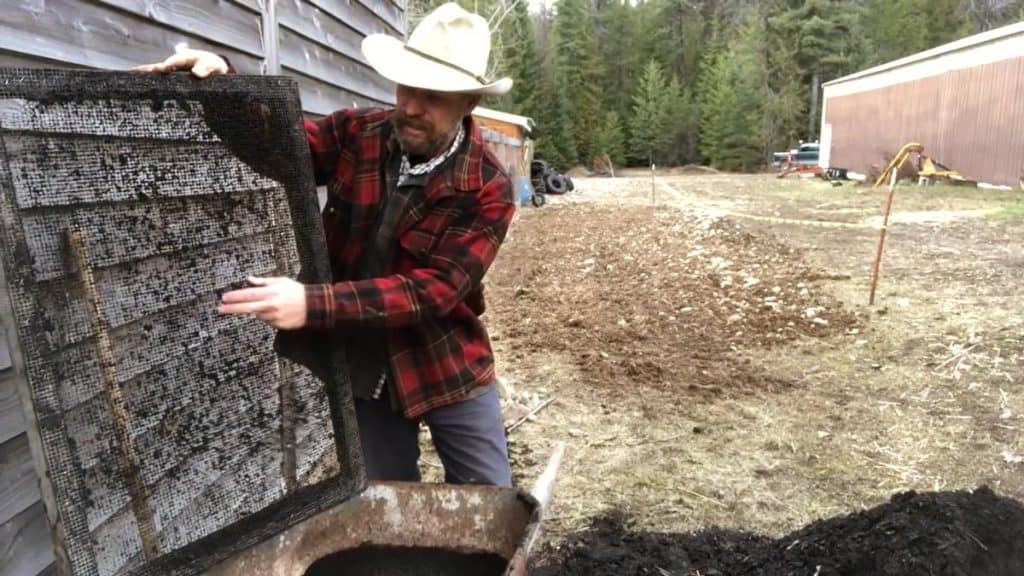
Large Woodchips
Use large woodchips for areas like your orchard or your perennial gardens. Areas where you won’t need to direct sow or plant seedlings.
We’ll be growing mushrooms in our new perennial garden area as well by inoculating the wood chips along the edges of the garden.
Small Woodchips
For areas where you’ll be direct sowing seeds, or planting small seedlings, use finer woodchips that have been sifted to remove any larger chunks.
This will help the seeds and seedlings set roots without hitting large pockets of air.
The beauty of this method is that it won’t get compacted, it’s so full of life and is the perfect canvas for planting a garden.
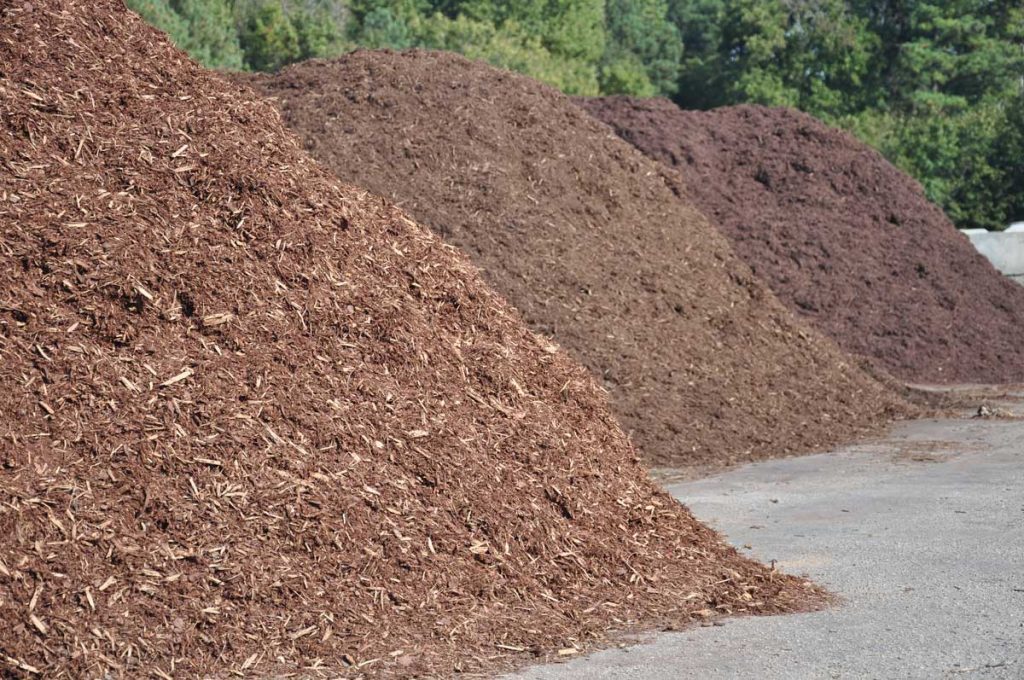
Frequently Asked Questions
Where to Find Woodchips
If you’re looking for woodchips to use in the garden, you can ask around to local arborists or tree services to see if you can get on a list for their tree waste. Many times companies like this have to pay to dump their loads at the city dump, so they’re happy to drop it off to your house if you’re nearby.
There’s also a great online resource you can check called Chip Drop. Sign up to receive notifications for your area of possible woodchip deliveries. They’ll usually deliver for a donation toward the driver’s fuel cost.
When you get woodchips, you can build a simple screen with 1/4 inch screening cloth and build a compost sifter. You can see how to build a compost sifter here.
What About Carbon?
One of the biggest arguments against the Back to Eden method is that it’s just woodchips so it will be full of carbon.
But by looking at the forest floor, you can’t deny that it’s full of life.
Paul has been using this method for 17 years now in his garden and actually had his soil tested. They tested not just for minerals but also for micronutrients. The people who tested his soil actually found two micronutrients they’d never found in soil before!
His soil blew away the “ideal level” of soil quality and he has no issues growing a garden year over year.
Where Does the Nitrogen Come From?
God created nature to be so simple and so balanced. If we look at the forest floor again, the pine trees that grow uptake nitrogen out of the soil to produce new growth. Then, each fall, those needles fall to the forest floor and replenish the nitrogen. It’s a perfect cycle year after year.
So when we’re growing a garden and the woodchips are breaking down, some people worry about the nitrogen they’ll bind up while breaking down. But as those woodchips break down far enough and turn into rich loamy soil, they are full of nitrogen and give back to the plants what nitrogen they took.
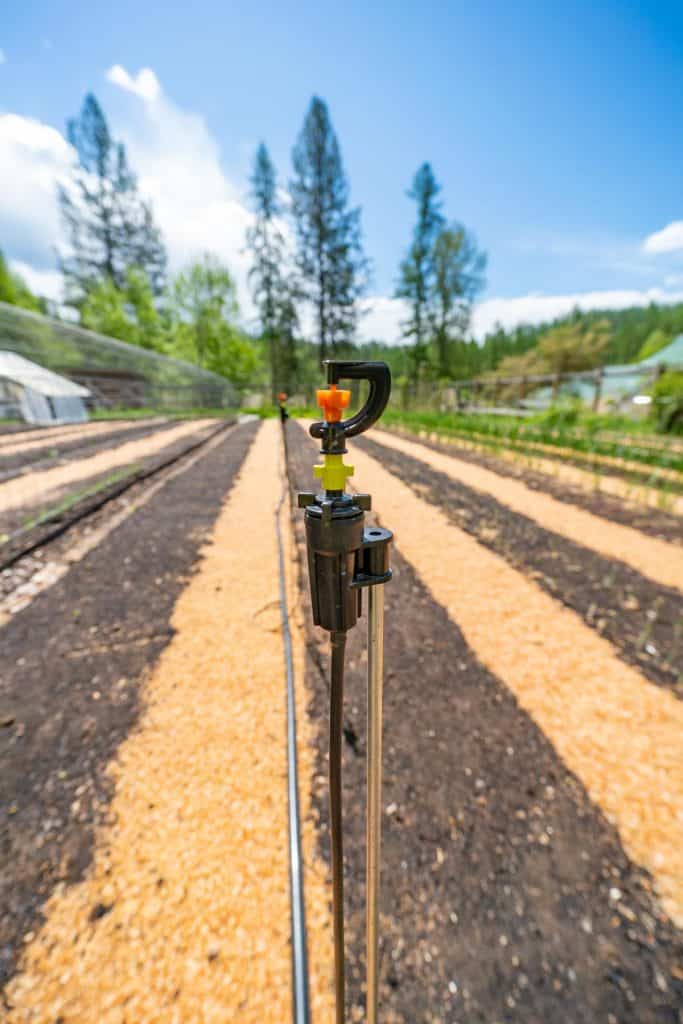
How Often to Water
Many people wonder if you need to water more or less with the Back to Eden gardening method. Paul shares that he hasn’t watered his orchard in 43 years and they’ve lived through some major droughts, but his orchard has continued to thrive.
If you look at the forest, no one is watering and all the plants are good!
When planting a garden and direct sowing seedlings, it’s a good idea to keep that soil moist until the plant grows up and sets its roots. Paul says once the roots are developed, he no longer has the need to water.
But the beauty of woodchips is that God created them to both displace and retain moisture. When there’s too much water they can bring it to the surface so it can evaporate. When there’s not enough water they can retain it.
So if there is a torrential downpour, your garden will not flood, and there won’t be standing water or a muddy mess to trek through. Likewise, if you’re experiencing drought conditions, those woodchips can actually help bring water up to your plants as it’s needed.
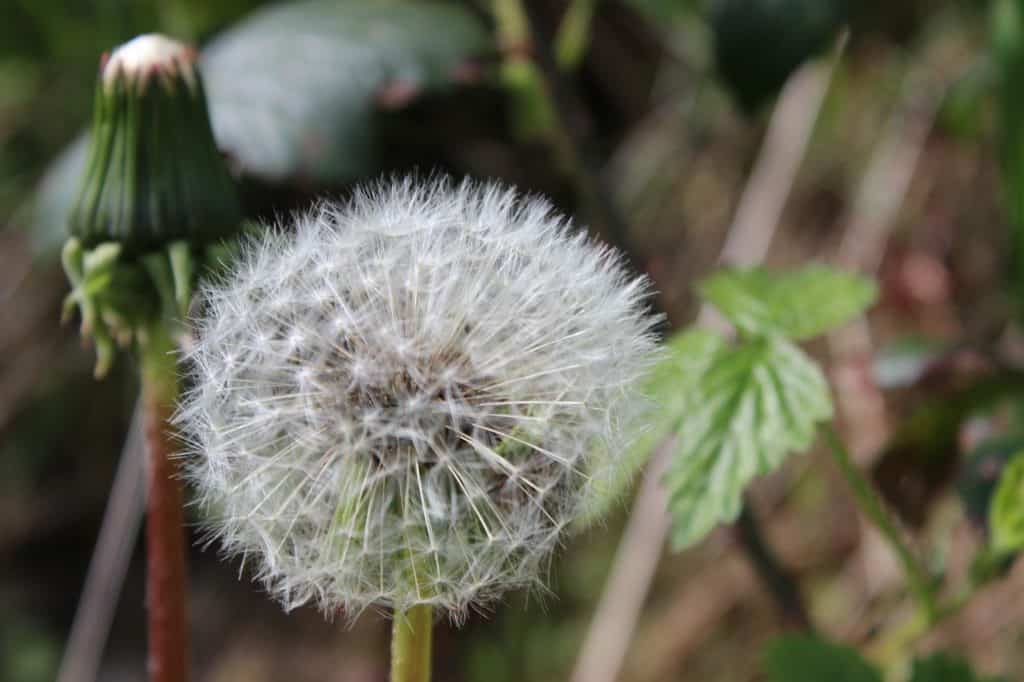
What About Weeds?
The Back to Eden method helps prevent an excessive amount of weeds from growing because the ground is properly covered. By not tilling the garden year after year that weed bank gets deeper into the soil where it can no longer germinate.
This method won’t prevent weed seeds that are blown in or dropped from birds from growing up, however, there will be much fewer weeds and they will pluck out of the ground so easily.
Weeds are simply nature’s way of covering the soil because it knows uncovered soil is dangerous. Uncovered soil will blow or wash away, so it will protect itself by covering it with weeds. If we cover the ground, nature doesn’t need to.
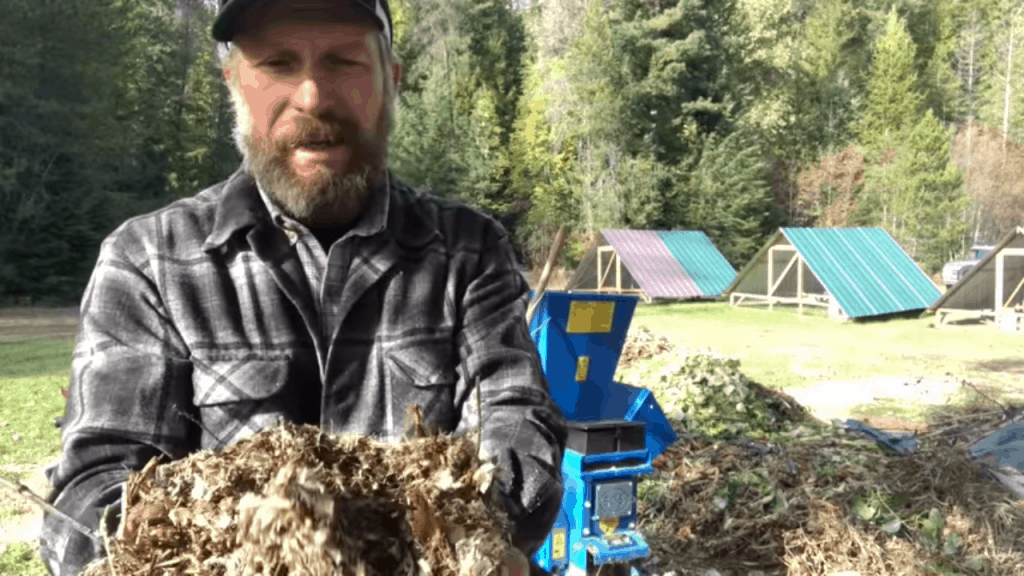
How Often to Add Woodchips
Paul adds about two inches of sifted woodchips every two years to keep his garden in good condition.
When To Add Woodchips
If we’re mimicking what God does, then the best time to amend your garden is in the fall.
Fall is when God allows the leaves and pine needles to fall from the trees. They lay on the ground all winter and spring when God sends rain and snow to create compost tea, which then feeds your soil preparing it for spring planting.
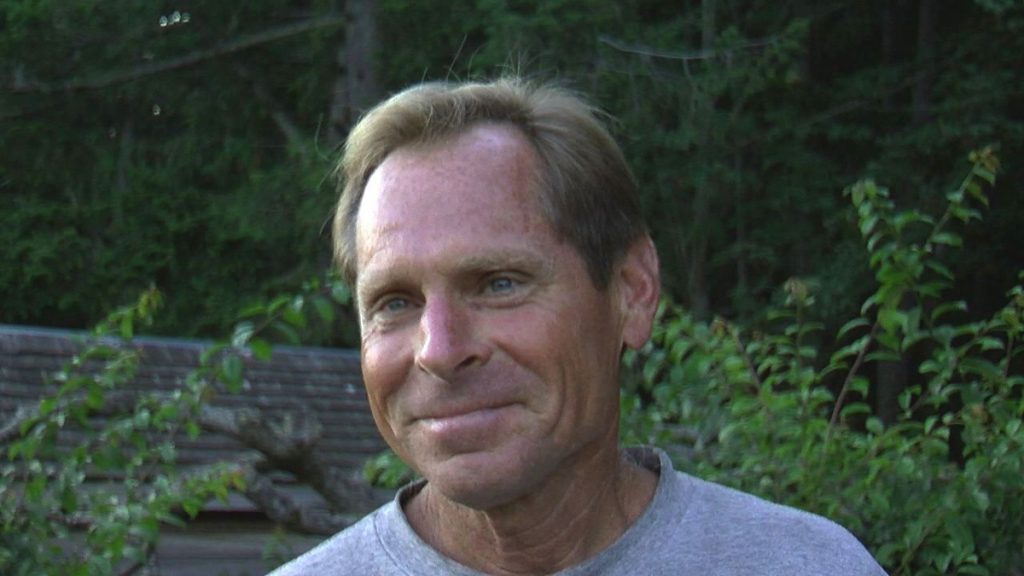
Where to Find Paul Gautschi
You can watch the Back to Eden film here, or you can do a quick search on YouTube and it will come up.
There have also been multiple people who have toured Paul’s homestead and made videos that are available on YouTube, you can find those videos from L2 Survive with Thatnub here.
David Devine has also written a book called Growing Food God’s Way: How Paul Gautschi Takes Us Back. At the time of this posting, there are currently books available on Amazon, however, Paul shares that this is his second edition (which includes six additional chapters) because they couldn’t keep the first book in stock!
We’re going to be implementing many of Paul’s Back to Eden gardening techniques in our own garden this year and in years to come, and we’ll be sure to share our progress along the way.
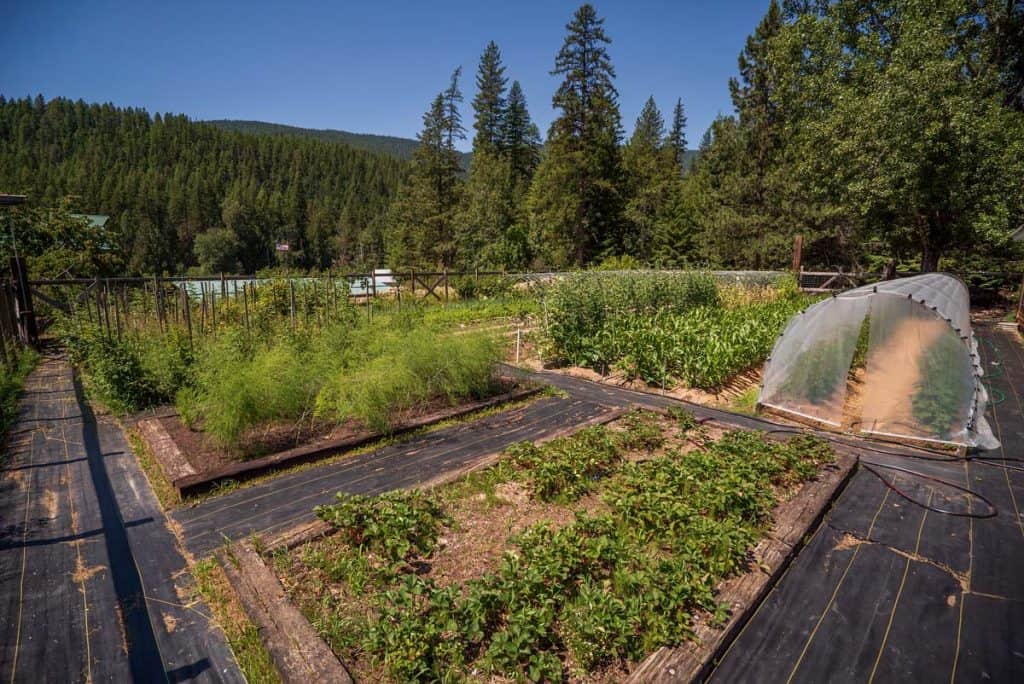
More Gardening Related Posts
- How to Keep Weeds Out of the Garden
- How to Get Rid of Grass in the Garden
- Garden Watering Strategies (How Much, How Often, When…)
- How to Make Compost the Easy Way – Composting 101
- When and How Often to Turn Compost
- Home Composting (Troubleshooting & FAQ’s)
- Designing a Food Forest: Everything You Need to Know to Get Started
Josh: Hey, guys. This is Josh with Homesteading Family. And welcome to this week's episode of The Pantry Chat: Food for Thought. I am so unbelievably honored today to be hanging out with Paul Gautschi from Back to Eden Gardens. We've been here with Paul all week filming a class that we're going to be sharing with you guys later this year on how to do the Back to Eden method. And Paul agreed to come on and visit with us for a few minutes. So, Paul, how you doing?
Paul: I'm well.
Josh: Oh, good. So most of you know Paul. You've heard of the movie or seen the movie, hopefully, Back to Eden Gardening. If you haven't, you really need to go check that out, and that tells a lot of Paul's story. But, Paul, why don't you just share with us a little bit how that film came about and just this method of gardening that you do that has now become known worldwide? Share your story with us a little bit, just about how God showed that to you.
Paul: Well, how I came across doing this... We moved here. I wanted to do a garden because I've always had a garden. We drilled a well, what, 213 feet. It got half a gallon a minute, no water. And so I'm building the house. There's this garden. Now, how am I go produce without water? And here it's August. It's really dry. All the grass is dead. I'm thinking like, "Man, how will I keep trees alive without water?" And he says, "Come to the woods and I'll show you." And I went off to the woods, and I got down on the ground. I started moving the cover. And this is August and everything is totally dead. All the grass is dead. And underneath that cover was the ground damp. And I thought, "You know what? I get this. This is powerful. I can do a wood chip cover, cover the ground in my orchard, around my trees, and they'll survive because these trees are." And so it was, to me, I tell people, one of the greatest gifts I ever got was that lousy well, because it opened me up to how nature works and how significant the order of nature is, and how I don't need all these other implements and other things because it's all there.
So that was really like a major moment for me, and from then... And how the film happened was there was a guy came out here from Louisiana. Michael Barrett was his name. I didn't know him. And my wife says, "You know, there's like a whole Bible circle. Let's go check it out." So I went over there and Michael's there. And so I was just sharing with the group how God is showing me how to grow things in my garden. And so after the meeting, Michael came up me. He says, "You know, most of my family are farmers and my friends are farmers. Could I come look at your garden? I was a little curious what you had to say." I said, "Yeah, come on over." So I took him on a tour. He went home and he told his family what he saw. And he says, "You know what, Michael? You've got to document this. You got to get this out there."
So he found these two young women who just got out of college, and he hired them to do the film. They were here for 11 months, and this film came out. And from my perspective, the film's not all that great. You know, I make grammatical errors. But you know what that film has? It has God's favor and anointing, because that film went out on the internet with no advertising, and it's been seen by over 50 million people in 200 countries. And it blows my mind. I'm getting phone calls from all over the world. This whole principle of covering gardens with wood chips is all over the world, and it is phenomenal. I mean, my wife's in Israel and there's a woman who's got her whole garden in wood chips. It's like, "Wow." You know? And she says, "Yeah, I know your husband because that's where I learned this from."
And it's just really so, so funny. My wife is a kind of a seer, and my natural inclination is to be kind of recluse. I don't know anybody. I don't go anywhere. And she says, "You know, God's going to find you." And she just laughs and says, "Anywhere I go in the world, people know who you are." It's just hilarious.
Josh: You can't hide a message. When God gives you something to share, we can't really hide that, can we?
Paul: So I feel so thankful, because in my natural mind, if someone would've told me that this would've happened to me, I says, "No way, impossible." I would've never even dreamed of it. And I love God. He just says cool things beyond what you could ask of me. That's the word. You know?
Josh: Oh, man. And that movie has changed the lives of so many people.
Paul: I know.
Josh: You know? Both from just our perspective on nature and seeing God working in the world and what you've shared and what he spoke to you through that, to just guarding and gardening in a whole new way and in a sustainable way and working in harmony with nature. And I think one of the hardest things that I've struggled with over the years and that I see a lot of other people is the simplicity of it. And even being here with you this week has just been so amazing to experience the simplicity of it. And maybe just share that with us and that piece of looking at the woods and a little bit deeper there. And it's hard for some of us to get our head around, with all the things we've been taught in this industrial world, that this can be so simple.
Paul: Yeah. Well, I come back to that scripture that Jesus says, "Come learn of me. My yoke is easy. My burden's light. Take my yoke upon you. Come learn of me." And I love that. God made everything easy. He didn't make it hard for us. And to me, it's such an incredible principle. When things get difficult and hard, I'm thinking like, "I've moved away. I'm not following God because this is not his way."
Josh: Yeah. So, if somebody watching hasn't tried this way yet, they've been thinking about it, they're maybe having a hard time getting their head around it and like, "Wood chips, really? I can just put wood chips down and it's that simple?" Like how would you encourage them? Or maybe start with how do you get started? What do you do? Maybe just walk through the steps. I know we've been talking about this all week, but maybe just walk through the steps of how to get it started and create this Back to Eden garden.
Paul: Well, I think, first of all, for me, it was just getting a premise that everything in nature has a covering. We have skin. Birds have feathers. Fish have scales. The earth, the soil is covered. It's a living organism. And when you take the cover off, it dies. And so that is such a key principle. Wherever you're growing things, never remove the cover and maintain the cover because that will feed and support the ground. And that principle is so liberating. I mean, it's so awesome how incredibly effective it is and so non-labor intensive. It's just really cool. It's awesome. Because I used to work so hard to fail, it was pathetic. I mean, I worked hard to fail. I was labor intensive tilling and pulling weeds and taking out rocks and doing all this insane work, completely counterproductive. We didn't know it. So it's hard to do.
Josh: So, how did you discover this? Because I mean, so you're observing in nature. You're talking to God. You're looking at the way he made things and he's speaking to you. And if I remember right, it started in your orchard first, right?
Paul: Yes.
Josh: Tell us that story a little bit.
Paul: Well, I started planting my trees with a couple of the wood chips. And what was amazing to me is that when I first started, you could see in the summer they were stressed. But over the time they got stronger and stronger. But what was amazing to me as I look back on it is how [inaudible] that I was. Here I've got this orchard working amazing in wood chips, and I'm off here, there's a garden in front of it, tilling my soil, hauling in truckloads because we were losing it every year, and still doing it when I had this working for me. I just didn't get it. And then one day, this was probably six years, six, seven years into it. I was pushing a stick down to run a string, to make a straight line for my rows, and I hit this hard [inaudible] six inches. And I'm whining to God. I says, "God, how come my [inaudible] not breaking up? I'm doing all this tilling." And he says, "I'm not going to talk to you. Go in the orchard and weed." I thought, "Whoa, you're not going to talk to me?" "Yeah. Go in the orchard and weed."
So I got in the orchard, and as I'm weeding, he says, he promises, says, "Why don't you start moving that soil away?" And I started moving it, and I'm down in my elbow in this beautiful black compost. And I got angry. I says, "There's something wrong with this picture. I've been struggling with this in my garden. I don't have it. I didn't do anything here." And I told people I felt God smile and he says, "Well, it works in the garden the same way. You didn't ask." I was so mad. I threw that tiller away and started covering my garden with wood ships. Like, "Duh." It was so amazing how I just didn't see it. It was in my face, but I didn't see it.
Josh: We're dense sometimes, aren't we, as humans?
Paul: Yeah. And I think because of how we're trained, our education, we just keep thinking, "That's the reality, no matter what I see," and we just ignore it. We don't get it.
Josh: Well, we've been taught to trust the science. It's the buzzword right now, right? But trust the professionals in front of us. And here God's speaking to us all the time, showing us a more natural, easier way.
Paul: Amen.
Josh: So, when you first put wood chips on the garden, what did you do? Did you go... Like what kind of wood chips? And was it like two inches or a foot? Or what'd you do?
Paul: Well, I think about four inches. And when I first started, I was using nothing but... You know, [inaudible] wood chips are pretty coarse. And so when I planted my garden, because I'm planting little seeds, I would pull the wood chips away, and I would plant in the soil. And as the plants grew up, then I'd move the wood chips around to cover the ground. But as you get older, you start thinking that convenience makes sense. And I discovered the place they made/had wood chips. They also had a product of screen wood chips, which they take the wood chips and run it through the fine screen and you'd have really fine material. I thought, "You know what? That's the same wood chips, but it's fine and I can plant seeds with it." So I started to cover my garden with that. And that was so cool. I'd make a groove with my rake, plant the seeds, and I'm done. No pulling stuff back. So that really changed everything, like made it so much easier for me.
Josh: So that's just that sifted material. And I think that sifted material is coming from parts of all of the tree, right?
Paul: Yes.
Josh: Not just like the large woody parts.
Paul: It's, yeah, the whole chip branches. And they just run it through it. They have this big screen, and you'll see, as it's running, the fine stuff comes through; then the coarse stuff goes out on a... just spills out kind of thing. And that fine stuff, it's the wood chips, but it's fine material and you can plant seeds right in it. So it makes it really easy to work.
Josh: Yeah. And I think that's one of the confusions out there, and I know I was confused about this a long time, and I've seen stories of people. And they go and they take the big wood chips, and they put six inches of that down across the garden, the large ones. And then they try to plant them, and it doesn't work. And they go, "This doesn't work."
Paul: And the reason is because the wood chips have so much airspace. There's just not enough... It's too much airspace. You need to have compact... You know, soil's pretty tight together.
Josh: So it's really that fine wood chips and that sifted wood chips from all of the tree...
Paul: Which is the ideal cover for your garden. We just spread a load today, and it was just amazing how quick it went out here. It was great And then you're done. And the beauty of it is it will compact and it's just full of life, and it just makes your gardening so much easier.
Josh: Well, we created a garden what? Couple hundred square feet maybe?
Paul: Yeah.
Josh: In an hour and a half, I think.
Paul: Yeah, it was awesome.
Josh: Putting down a little bit of paper and spreading those wood chips out. And you say it's ready to go. You can plant right in that.
Paul: I'll plant tomorrow, yeah.
Josh: Yeah. So one of the problems that people have with this method that I'd like you to talk about is... I mean there's a couple, but so the first one is carbon, right? "Whoa. That is way too much carbon. The garden's going to be imbalanced. You're going to drain all the nitrogen out of it." And that's one of the arguments that says this doesn't work. Can you talk about that and why that's not really the case?
Paul: Well, I go to the woods. If you go to the forest, that's the most fertile soil in the world. There's no place that has soil that nice. How is that soil created? By needles, leaves and twigs that fall on the ground, wood chips. I mean, this is so obvious, and it's so insane how they tell us it won't work. It blows my mind. It's like, it's all around us. It's so visible. And, "Well, you can't do that."
Josh: And so this garden behind us, how long have you been putting... Right here, you guys, this is Paul's garden and it's just getting going. There's lettuces. And it's been a cool spring, and this is starting to get going. But you've been just not tilling and layering wood chips for what'd you say? 17 years on this spot right here?
Paul: Yeah.
Josh: And what's your soil like? I think you've got a story about a soil test and everybody thinks, "Okay, it's just carbon on top. That's going to suck the nitrogen out of it." But you've had somebody come and test your soil.
Paul: Yeah. The two women who did the film are living in California, and they found these people who are testing soil for micronutrients, not just minerals. And so they says, "We want to take a sample of your soil, have them test this soil." I sent them some, and these people were blown... They found two micronutrients in my soil they had never seen before. And I thought, "Wow, God, that's awesome."
Josh: And so the rest of it, like everything's about NPK, right? And how did that part of the test come out?
Paul: Well, what was amazing was the numbers. And they say "desired level," and it was like in two digit. And mine were in four digits. They were totally shocked. They had never, ever seen anything like... "This is off the charts." And they said, "What did you do?" I didn't do anything. I just put wood chips on the ground. Yeah, I mean, the numbers are amazing. It's just so, so cool.
Josh: So I got to ask you this. And where does the nitrogen come from?
Paul: Here's what's so simple about God. You see those trees out there? If you look, you can't really see behind me, those evergreen trees. Those needles fall on the ground. How those needles were made was from nutrients came out of the ground. Every fall, every winter, they go back to the ground and refeed the soil. So you have this perfect balance. What's taken out goes back. There's no negative. There's no loss. It's perfect balance. This is what I so love about God. He's so ordered. He's so balanced. And that to me is such a key thing in life. Finding balance is so big, such a big deal. And I love how nature is so balanced.
Josh: He knew what he was doing, didn't he?
Paul: Yeah. He comes from all wisdom and all knowledge. You don't get higher than that. That's all wisdom and all knowledge. That's what his premise...
Josh: So the wood chips, we've kind of talked about it's not the big wood chips. There's a place for the large wood chips, right? Your orchard, your perennial gardens.
Paul: Yeah. If you don't have to plant seeds, the coarse stuff is fine because you're not accessing the soil.
Josh: Is it better? Like for those areas, is it better than...
Paul: I don't know if it's better. It's just... And again, the principle in the scripture is: from dust we came; to dust we return. Everything eventually turns back to dirt. You see, in God, there's no waste. There's no toxic waste in it. Everything turns back to dirt. It's just a beautiful principle he's created in nature. And some things go quicker than others, but they all end up in dirt.
Josh: Yep. So, where do people get the right kind of wood chips, particularly for the garden? It's pretty easy to source the larger chips that you might put in your orchard or your herb garden out here. But sourcing, what do people need to think about or look for to source these wood chips that are specifically for the annual garden that you can plant right in?
Paul: Okay, well, the chips come... The tree service's chips, and depending on who they are, sometimes they're nice, pretty [inaudible]. Some of them keep them sharper. So they vary in size. But when you get that material, what I'm using, it's called hardware cloth. And it's basically like a quarter-inch screen and it's three-feet wide. I got a field. I put it in a wooden frame. I put it in my wheel barrel, and I put it through the [inaudible], and I screen it. And then the finest stuff comes through that quarter-inch stuff. And that stuff there, you put in your garden and you plant your seeds in, because it's totally small enough that you can plant right in.
Josh: Okay. So that's just the sifted material. It's sifted down.
Paul: It's screening. It is a screening material.
Josh: Yeah. Still, it's just amazing to me. It's mind blowing that just has all the nutrient in it right there.
Paul: Well, it's the same material. It's just in small pieces. You know?
Josh: Yeah. And so getting going, you'd probably put down like four to six inches, like if somebody was going to convert a garden, like you did, to start today? With all your experience over the years now, and somebody's got a garden, they've been just tilling, doing that conventional method, and they want to transition over, so maybe four to six inches of that sifted material to start?
Paul: That's a good start.
Josh: And you don't even have like beds and walkways. It's just all garden, because there's not really rows except for where you plant.
Paul: Here's why I don't have walkways; because I can walk in my garden and it won't compact. People have paths because they don't want to compact their garden, because it's dirt. But in my garden, you can walk anywhere in there and it just you bounce because it won't compact. And so the whole process of having paths and stuff is eliminated. It's so fun. It makes it so much easier.
Josh: Well, and when I got here, he took me out there, back here behind us and said, "I want you to stomp on it. I want you to jump up and down on it." So he had me literally jumping up and stomping as hard as I could. And it was just like being on a cushion and, yeah, you watch it move a little bit, but it's really, really soft. And then you just watch it kind of rise back up and it fluffs out. And it just doesn't compact.
Paul: And I can come in behind it with my rake and it totally moves. You know? It just is awesome.
Josh: And you tell these stories about how people come and say, "You just can't do that." And I have one I want to share with everybody we were talking about earlier. And when I first applied Back to Eden Garden, your method here, in Tennessee, when we were living there and we were starting a large garden. And we'd watched your movie and decided to try this. And it was very, very heavy clay in that area, and we had a very wet spring. And in that area, you don't go out in the garden when it's wet and rainy because of the clay. It's slippery. It's muddy. It compacts. You just can't get in there. And we didn't really know any better because we didn't know the area, but we had done compost, very thick, and then put the wood chips over it, planted everything in it. And like you said, we didn't know not to do the sifted, so we just did the bigger ones over compost and moved them away a little bit where we planted.
But we were just going along and our garden was doing great. It was a first-year garden. It was wonderful. And we're harvesting. We're doing all this stuff. And yet we had people keep coming over, going like, "How are you getting in your garden? How are you harvesting anything right now? You can't do that. You're not supposed to be in your garden right now. That's not possible," is what they kept telling us; that you could be out there pulling that stuff in, because you can't walk out there. It's just a muddy mess. And we were like, "No, no." And it's just what you were saying. Those wood chips, they... And I wanted to tie that into water and talk about water because while everybody else's garden was a muddy mess, ours had plenty of water, but yet it wasn't messy and it wasn't muddy.
Paul: Yeah, wood chips are an amazing sponge. They really hold water well.
Josh: And so do you need to water less? Do you need to water more when you're doing this method?
Paul: Well, my orchard hasn't been watered for 43 years, and we've had some major droughts, really serious, dry, dry droughts. And that place is always good. If you look at the forest, no one's watering ever. They're all good.
Josh: So, what about your annual garden here?
Paul: My annual garden, like in the spring when it's raining, I'm okay. But in the summertime when I plant seeds, because I'm planting seeds very shallow, like quarter inch, and so when the sun's hot, that quarter inch top dries off pretty quick. So I keep that damp until the seeds are... Once the seeds are up and the roots sound, then I'm good. I don't need to water anymore.
Josh: Wow. And you've got a very good structure. Because of those wood chips, the soil has that perfect balance of holding water and air. And you were talking about the wood chips regulating and even bringing water up when it's needed, and that regulating of the water table kind of in the soil.
Paul: Here's what's amazing to me about wood chips. We have the whole rainforest just down the road, 70 miles. It's a rain forest and it gives 14 feet of annual rain. Well, not 14 inches, 14 feet. Now, 14 feet of water is a pond. You hearing me? If you watch Back to Eden film, you see the girls are out walking in that forest. The ground below them is not boggy, soggy. There's no standing water. And here's what I love about God. The same material that's designed for holding water also displaces it. When there's that much water, the wood chips bring the water to the surface and evaporate it. When there's not enough water, they retain it. I don't know about you, but this God is awesome. And they want to question intelligent design? This is powerful. It's totally huge. It's like, "Wow, God, what a great idea." You know?
Josh: And here we are working so hard and creating hard pan below our soil from tilling and struggling and striving. And yet God's given us a system that really is that easy. And you guys, it really is that easy. And I've struggled over the years, and I'm reinspired being here because I've struggled just to learn, to tell myself, "You don't need the till." And you don't even broad fork, which we still broad fork a little bit to loosen up the soil. But you don't even do that. You don't need to do anything. And that soil is just finding its perfect balance.
So talk to us about weeds. And next to water, that's the nemesis of every gardener, right, is dealing with weeds?
Paul: Weeds happen because the wind blows and the plants go to seed, and they have seed, they blow into your place. It's a given, you know? And interesting how the account in scripture when weeds started. In the Garden of Eden, there was no weeds. Didn't happen because there was such a perfect covering over everything. When man left the garden and he came under the influence of the devil, the devil taught him to till. He didn't do it in the garden. It was never done there. And so he came under the influence of the devil, and by tilling the ground, destroying all the life force in the soil, nature, knowing ground is unsafe uncovered, sends in weeds to create a new cover. They're trying to recover the ground because they know exposed ground is unsafe. It's going to blow and wash away. And so nature immediately recovers ground with weeds to create a new cover.
Josh: Cover it up. And so it wants to do that. And regular soil, so when you're tilling, it's turning it up. But when you're laying wood chips down, basically that seed bank's getting down lower. And so any weeds that you have there, generally they're blown in or they're from the birds, and so there's still weeds. And that's one of the myths out there, is that people say that this is going to eliminate weeding.
Paul: No.
Josh: It doesn't eliminate weeding, but it does make it a lot easier.
Paul: It reduces it and makes it much... They pull out so easy. It's just so easy to get the weeds out. I have this really nice tool. It's a little blade. It's coming [inaudible], and it's so fast. It's so fun.
Josh: I think the way God displays his graciousness and his mercy to us and nature is really fascinating. Spiritually he's graceful and merciful to us through Jesus. And yet we tend to overlook sometimes that I think in nature... Because the consequences of sin is death, right? So, sin brought death into the world, and yet it wasn't immediate. And he's brought a salvation through Jesus, but he's also displayed these principles in nature. And talking about these things, it's really exciting to me to see how, well, we're not in Eden anymore, and we won't be until he returns things back to normal or back to the way he intended them to be. But he showed us his mercy in nature. And this is one of these areas, when we learn to work with the way he made things, just like when we learn to live by his spiritual principles, we grow spiritually. Right? And we find, like you quote often, his yoke is light. His burden is light. His yoke is easy. And he displays that to us in nature. This is one of the examples of this, I think, that he says, "Look, this is my grace. You don't have to work so hard. You just need to look at the way I've made things and follow it."
Paul: Amen.
Josh: So, is there anything in this type of garden that you can't grow? Anything that you can't do here?
Paul: Well, in climate, I can't grow citrus trees because it's too cold here. They're primarily evergreen. So the climate limits what you can grow.
Josh: Right. But the garden itself, but this type of gardening... And I guess that we could turn that question around and say: Can you do this anywhere in any climate?
Paul: Anywhere in the world. And I use Israel as an example. Israel was originally a land flowing with milk and honey, a beautifully productive agricultural place. The Israelites turned away from God and got dispersed, and they all were kicked out. Israel became a desert for 2000 years, a full-on desert. They've returned now and repented. They're planting, and now it's raining and snowing in Israel. I love that. Everything in nature so speaks about the significance of repentance. God is so there for us, and all it requires us: repent, correct, and everything comes back right. I love that. It's just so powerful.
Josh: "Repent and follow me," right? And as we follow him, he shows himself this.
Paul: See, repentance is a gift. You could correct. Being wrong is no fun. I love repentance. It's a gift. You could correct, get right.
Josh: Stop banging our head on the wall.
Paul: Yeah.
Josh: Okay. So one of the struggles that some people have is access to wood chips, especially these sifted wood chips. Or sometimes people have other resources maybe that make more sense than wood chips. So tell us some other things. Are there other things that we can use to do this if we don't have the wood chips enough to do our garden? And do they work the same? Is there any things we need to watch out for? And what else can we do if getting access, especially to these sifted wood chips, is a challenge?
Paul: Yeah. Grass clippings, leaves. If you have like a chicken pen, you put in a chicken pen on the floor like sawdust, and then the chickens will manure it. Because it's mixed with sawdust, it's not hot. That's basically good cover. So really any good organic material works as a good cover, and whatever you have will work.
Josh: Any organic material? What about pine needles?
Paul: Pine needles are wonderful.
Josh: Everybody says that's too acidic.
Paul: Here's the thing that is again how we don't pay attention. If you look at pine trees, underneath them is a bed of needles. If you look at the pine tree, it's bright green. It's not yellow. It's not looking like there's nitrogen deficiency. It just so blows my mind how the things they tell us have nothing in nature to validate what they say, and we believe it. It's crazy.
Josh: So I'm going to challenge that a little bit for the sake of other people that are out there, because people are going to say, "Yeah, well, but that's the forest. You don't see a lot of vegetables growing on the forest floor." So yes, the pine tree's growing, but why does that work in the vegetable garden? I think that's one of the things people get hung up on when they hear that discussion. How is it that it works there? Because there are no vegetables on the forest floor.
Paul: The reason it's done on the forest floor is because vegetables need light, sun, and the forest shades. That's the only reason.
Josh: It doesn't have anything to do with the acidity of the soil?
Paul: No. If you look in my orchard, underneath all my trees, I grow my finest produce. My produce under my trees is way bigger than stuff in the garden. It's hilarious.
Josh: It's delicious too. The asparagus, like the water almost jumps out of it.
Paul: It's incredible how well stuff grows under my trees. So it's just all about light, sunlight. And if there's shade, it's not going to grow. If you've got light, it doesn't matter what's growing around it. It's going to grow fine.
Josh: And I know there's this discussion about, again, against that acidity and the pH being off. And I haven't done this, but you were talking about the soil, down underneath, once everything's decomposed, the soil in the forest is perfectly balanced. It's not too acidic.
Paul: It's 7.0, perfect center. And everything in my yard is 7.0. I love God. And see, the beauty of 7.0, it's center. And so it doesn't matter if the plant prefers acid or alkaline because at center, they're all happy. They all do well. I love God. He's so balanced. He's so center. He's so right. It's so cool.
Josh: Well, and that's so freeing too, just that thought that you don't have to be fighting so hard to get this exact pH. This method just takes you to a balanced pH.
Paul: Exactly.
Josh: And it's good for your vegetables. It's good for your fruit trees. It's good for your herb garden.
Paul: And in my herb garden, I have a classic demonstration. You know, blueberries, which I have a whole row of them, are acid-loving plants. Right next to them, we're talking right next to them, I'm growing lavender, which is alkaline loving. And they're both thriving. They're both totally healthy and beautiful. I love it.
Josh: It's almost like it brings peace even to the plants, these plants that supposedly don't get along. Right?
Paul: Yeah, it's awesome. Well, and the other things that's really classic: I have wasabi growing. People flip out like, "You got wasabi?" Yeah, it's right over here. See, wasabi only grows in nature in standing water. We're talking standing water like streams and river beds, and in full shade. I have it growing in full sun, in wood chips, and I don't water. I love it. It's awesome. Then to blow your mind, growing next to it is sage. Sage grows in deserts with no water. And here I have the opposite extremes side by side thriving. And here's the whole... I had to ask God because my mind couldn't get around this. And what he told me brought me to tears. It was so powerful. He says, "In the wood chips, there's enough airspace for the sage to hang out in the open spaces and avoid the water, but because wasabi wants water, it grows because it's all there." And I thought, "Wow, God, you are so amazing." Everything is there, and the plants can choose what they want. What a God.
Josh: That is just mind blowing.
Paul: It's just... Well, it's God. That's his character. That's who he is. He's just that awesome.
Josh: That makes me want to go home and try so many things, seeing what I've seen. And I wish you all could see this because there's all these just examples of things that they tell you that you can't do. And yet you're sitting here doing it. And really the only limitation is climate. There's certainly things that are going to fall outside of climate and outside the zone. And that's amazing.
Well, I am reinspired to go back to my garden and even pull the broad fork out. And I shared with you guys a lot. We don't need to till, but I use the broad fork a lot to just loosen the soil without turning it over. And yet you're going, "No, there's an easier way even than that. Just leave it alone and just layer those wood chips."
Paul: How deep is your broad fork?
Josh: 14 inches.
Paul: You can go in my orchard and go down two feet with your hand in black soil. What's the point?
Josh: We're all working too hard.
Paul: What's the point of broad fork?
Josh: All right. Well, I'm going to try it. I'm going to do it this year. I'm going to set the broad fork aside and layer. And that's one more just specific question is: So, once you establish your garden, does it take a few years for things to kind of get a rhythm? And then how much should you add every year?
Paul: Well, it does take time because the beauty is, over time, it just keeps improving. It's not like it ever gets to a level we're done. It just keeps getting better and better and better instantly. No end of it. And it's all about cover. You eat to stay alive; so does the ground. The ground is consuming that live material, and you have to keep adding it. You keep feeding it.
Josh: And so do you put down... I think in organic gardening, good balanced compost, I don't know, it's a quarter inch or a half inch a year or something. I don't remember. It's like the general recommendation if your soil is balanced and doing well. I mean, do you have a recommendation or any advice for people, like how much every year to put down, to add, build that layer?
Paul: What I'm doing in my garden is every other year I put about two inches of the wood chip, the screen wood chips over the top of the garden. That's all I do.
Josh: Okay. So two inches. So tasically that's an inch every year roughly. Yeah. Well, good. That's close to what I've been doing, a little bit less. Now, okay, so what I do is because we have a farm and we've got a lot of animals, and we bring in wood shavings for the bedding, for the animals, for the chicken coop, we take all that and we add all our garden waste to it. We actually add all our animal waste, like when we're processing animals to it. And we mix that up, and then I use that like that covering. It's pretty much a compost.
Paul: It's all good.
Josh: I don't worry about whether it's broken down perfectly.
Paul: No, it doesn't matter.
Josh: I just put it down in the fall, and that works just as good.
Paul: Yeah. See, if you put it on top of the ground, it doesn't matter what condition it's in because it's not in the soil and it's not accessing roots. And so if you put it that way, you're good. And eventually over time it turns into really good soil.
Josh: And so should we do that in the spring or the fall?
Paul: When does God do it?
Josh: Well, everything, the trees, all shed in the fall.
Paul: There it is. And here's the wisdom of God. When the farmers fertilize, they do it in the spring, which is stupid, because you're planting in spring and it takes time for fertilizer to get to the root level. But God in his wisdom does it fall. Then he sends rain and snow to create compost to build the soil for next spring's growth. It's a great idea. It's the best. And it's so mind boggling how we don't see it and we're not fertilizing in spring.
Josh: Wow. It's amazing how powerful and yet how simple this is.
Paul: I know. It is.
Josh: Well, and I just thank you, and on behalf of everybody here, for sharing, just sharing, with that movie years ago, and I know you've opened your place up here over the years to allow people to come and visit and just experience what God has shown you. And it really, really is amazing.
For those of you that haven't seen the movie, you really need to go watch the Back to Eden movie. And where do they find that?
Paul: BackToEdenFilm.com will bring it up. You can watch it for free.
Josh: Okay. And there's some YouTube videos, I think, of people that have done tours here and interviewed you. And...
Paul: It's L2Survivor, that nub, he comes out on my tours and he photographs and interaction I have with people and questions and stuff.
Josh: L2Survive?
Paul: L2Survive.
Josh: Is that the YouTube channel?
Paul: Yeah. Or ThatNub.
Josh: ThatNub.
Paul: The same person does both.
Josh: All right. Well, we'll try to get you guys some links down below for that. And now you also... There's a book out I think.
Paul: Yes. A guy came here from Oregon on a tour and went home. He couldn't sleep that night. And God kept telling him, "You need to write a book." He never wrote a book before, but he wrote a book. It's called Growing Food God's Way by David Devine. And he has a second edition now that's come out because the first one sold out. So there's two editions. And if you just go to the internet, type in Growing Food God's Way by David Devine, you'll find it. And I think at this point it's [inaudible] because I think he sold out again. So you can get it on the computer.
Josh: And this is your biography, right?
Paul: Yeah. Basically my biography.
Josh: Your story. Yeah.
Paul: Yeah.
Josh: Well, I've not read that yet, but I'm going to go home and get a copy. I'm really excited about that. And you guys, I'm just so honored, Paul, to be here with you. Thank you for sharing your time with all of us. And we're going to be presenting the Back to Eden method in a new way where Paul is teaching, walking us through it, step by step, and answering all these questions. And so that's going to be a part of the School of Traditional Skills later this summer. So keep listening for more information on that. It's been great hanging out with y'all, and I will see you soon. Bye.
Sign up to receive email updates
Enter your name and email address below and I'll send you periodic updates about the podcast.











